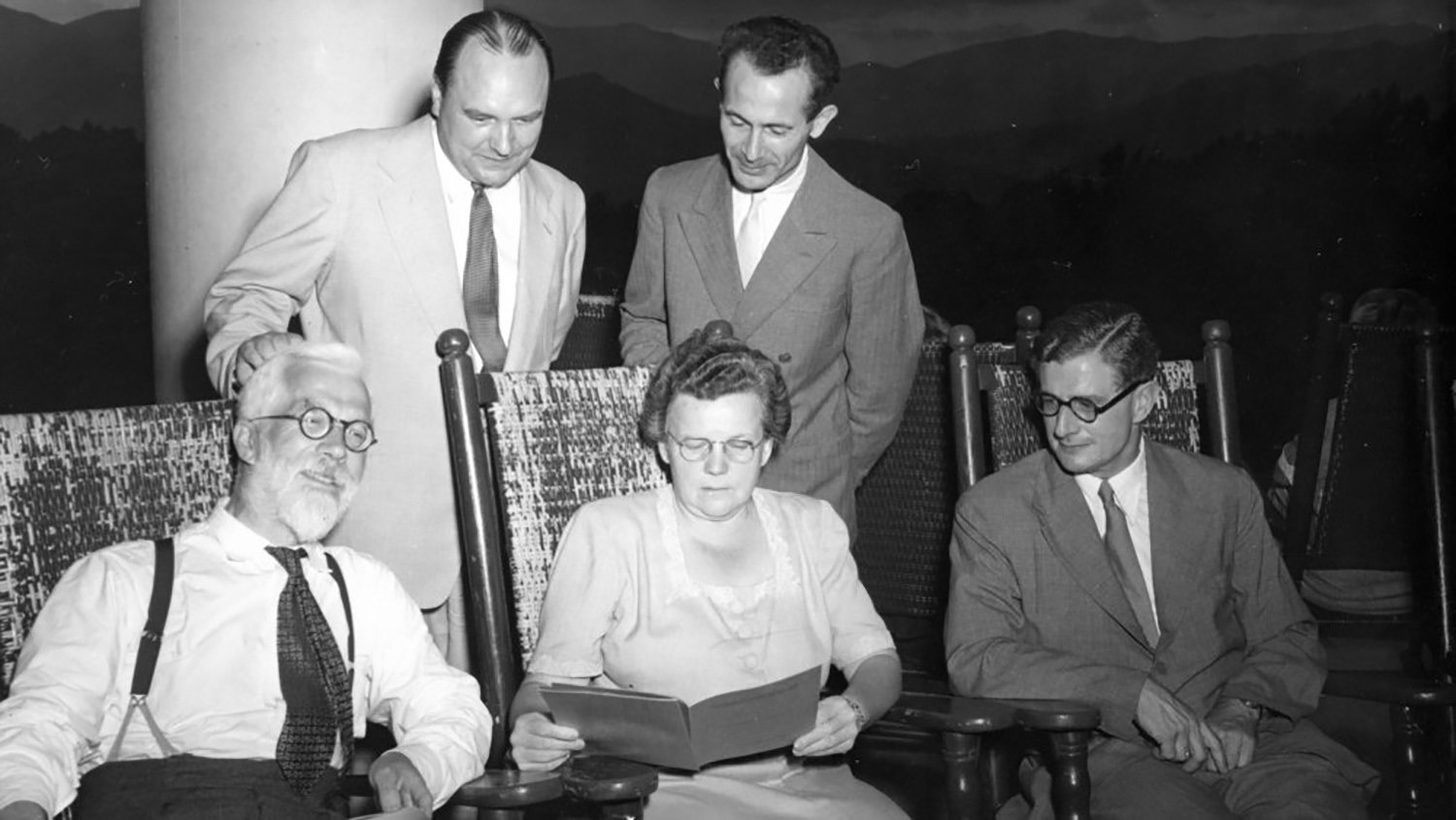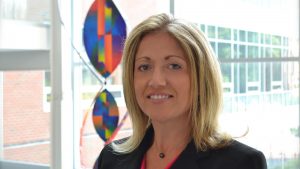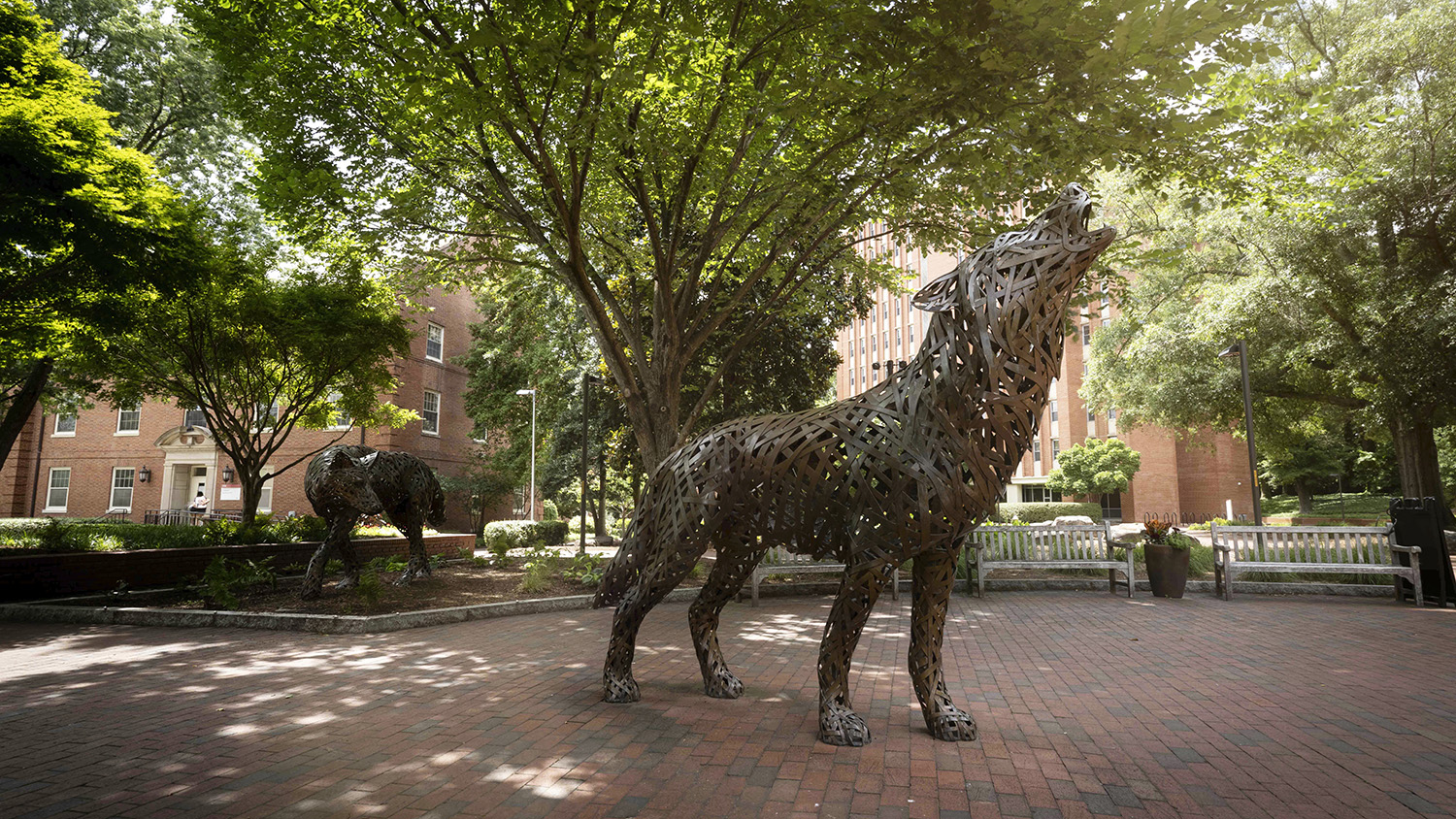Women Faculty Trailblazers

In the NC State University Libraries archives, you’ll find a photo of NC State’s first president — Alexander Q. Holladay — with the first group of university faculty, taken in 1889. Though a small group, the faculty at the then North Carolina College of Agriculture and Mechanical Arts contained no women, and wouldn’t until more than two decades later. This Women’s History Month, we celebrate the women who paved the way for other women to succeed at NC State.
Faculty Firsts
In 1902, Adeline Stevens became NC State’s first female faculty member, teaching biology and zoology during the 1902-03 academic year. A dedicated educator, Stevens also co-authored A Practical Arithmetic, published in 1909.
Stevens was one of quite a few firsts for female faculty at NC State. Here are some other firsts on campus:
- Gertrude Cox. Often referred to as the “first lady of statistics,” Cox became NC State’s first female full professor and department head when she was named a professor of statistics and head of the Department of Experimental Statistics — which she founded — in November 1940. She is also the namesake of the Gertrude Cox Award for Innovative Excellence in Teaching and Learning with Technology.
- Dorothy Williams. Williams, an assistant professor in the Department of Sociology and Anthropology, became the first African-American instructor with faculty ranking.
- Mary Wheeler. In 1973, Wheeler became the first female to receive the NC State Outstanding Teacher Award. In 1977, she became the university’s third female department head, leading the Department of History.
- Ada B. Dalla Pozza. Dalla Pozza, who boasted a more than 70-year career, became the first female president of the Faculty Club — now the University Club — in 1981.
- Sondra L. Kirsch. in 1985, Kirsch became the first woman to chair the NC State Faculty Senate.
- Debra W. Stewart. in 1986, Stewart became interim dean of the Graduate School, also becoming the first female dean. She became permanent dean two years later and served in that role until 2000.
- Christine Grant. in 1989, Grant became the College of Engineering’s first African-American female faculty member.
- Barbara Parramore. Parramore, NC State’s second female department head, became the first female recipient of the Holladay Medal in 1994.
Working Toward Equity
Since Stevens’ arrival on campus, NC State’s female faculty has grown to more than 850 members as of fall 2018. There is still much work to be done, however, for female faculty equity on campus. Women make up just 38 percent of total faculty; African-American women make up less than three percent of faculty; and women of color overall make up about 8 percent of faculty.
In NC State’s most recent strategic implementation plan, the university seeks to enhance commitment to a more diverse and inclusive campus. This includes “targeted efforts to recruit and retain a critical mass of diversity representation in students, faculty and staff so the campus community better represents the publics served by NC State.”
Women faculty at NC State have already worked to forge a path in this area, including a past National Science Foundation ADVANCE grant. “Developing Diverse Departments” was formed to better recruit and retain women faculty and faculty of color.
Projects implemented through the grant included climate workshops for department heads, the Recruiting Diverse Faculty program, and implementing faculty liaisons to the Office for Institutional Equity and Diversity.
“We extensively reviewed women’s scholarship on topics like unconscious bias and saw how lack of equity created problems in an institutional framework, and we wanted to do something about that,” said Laura Severin, a co-PI on the project and head of the Department of English. “If you make a concerted effort to include women and faculty of color in leadership, you’re going to end up with a much different, much stronger institutional structure.”
Severin is also a part of the women’s and gender studies program at NC State, which focuses on various gender issues, feminist theories and methodolgies, and women’s contributions in various fields. The program started out as a collection of classes, eventually developing into a program offering a minor, then a major and graduate minor.
“In the early days of the program, there were not a large number of women faculty on campus, and the program provided the supportive community that I needed in order to survive and earn tenure here,” said Severin. “Every university that is serious about equity for women and faculty of color should have a women’s and gender studies program, because that provides an intellectual foundation to support the scholars with the knowledge to make positive change in an institution.”
Recognizing Leadership
NC State’s Council on the Status of Women works with the Provost’s Office on providing professional development and support to all women at NC State. Each year, the council recognizes the contributions of faculty, staff and students in establishing equity on campus through the Equity for Women Awards. Award winners demonstrate excellence in leadership, service and scholarship.
Audrey Jaeger, Alumni Distinguished Graduate Professor in the Department of Educational Leadership, Policy and Human Development, won the 2019 faculty award. We spoke with Jaeger about the award and working toward equity for women in higher education:

What does winning the Equity for Women award mean to you?
It is a significant honor and recognizes the work of so many represented in the various projects with which I am involved. The work with NC State students in science and engineering, who are preparing the next generation of STEM students at the elementary school level, has been supported by Kathy Titus Becker in the WISE Program and Kim Gervase, executive director of the North Carolina Science Olympiad. The National Science Foundation Faculty Workload and Rewards Project includes faculty at NC State from the College of Sciences and College of Natural Resources, as well as colleagues at the University of Maryland and University of Massachusetts, Amherst. There are so many colleagues doing such great work that I am honored to be included and hope I represent them well.
Why is it important for women to support other women in academia?
My work on faculty workload equity is funded by the NSF and is in partnership with the University of Maryland and University of Massachusetts-Amherst. “The goal of the project is to improve organizational policies and practices that shape equity in workload for all faculty, including women and underrepresented minority faculty. Participating departments take part in a pre- and post-test survey, four project activities, and craft equity minded department policies and practices to implement at the conclusion of the project.” I lead the North Carolina departments involved in this project, five of which are at NC State. Research that shows, “women and underrepresented minority faculty engage in disproportionate amounts of teaching, mentoring, and service work, relative to peers and controlling for institutional type, discipline and rank.” By working with individual departments at NC State and across North Carolina, we hope to change systems “by designing and testing strategies to mitigate and prevent equity issues in how faculty work is taken up, assigned, and rewarded.”
There are so many women trailblazers here at NC State we couldn’t include them all in this article. If there are any other “firsts” or historical contributions by women on campus that you would like to mention, please let us know in the comments!
- Categories:



Elizabeth C. Theil became the first woman to hold a named professorship, at NCSU(Distinguished) University Professors, and was appointed to that position in 1988.
At the tiime, the 12 NCSU University Professors reported directly to the Provost; Elizabeth Theil led the development of the Council of University Professors. During the period when James Oblinger was Chancellor of. NCSU, he changed the University Professorships to reporting to Department Heads, thereby depriving the Provost of their direct counsel and ideas.
Dr. Hedwig Hirschmann Triantaphyllou came to NCState in 1954 (-1992) where she was only the fourth women to achieve the rank of Professor. More information “From Laboratory to the Field — A History of Plant Pathology at North Carolina State University”. October 2008. Griffith, Peterson, & Sutton.
Nancy Allbritton, MD, PhD. in 2009, Dr. Allbritton became the College of Engineering’s first female Department Head.
Minnie Miller Brown should also be recognized for her work in University Cooperative Extension, her advocacy for African-American farmers, and the development of the EFNEP program.
Thanks for pointing out Brown’s contributions! Here’s a letter from Brown, written in 1963, to home economics extension personnel in North Carolina. This is from the NC State University Libraries’ and North Carolina A&T State University Cooperative Extension Service Archives Collection.
https://d.lib.ncsu.edu/collections/catalog/ncatcoe-001-023-006#?c=&m=&s=&cv=&xywh=-1821%2C-252%2C7123%2C5020
Where is Dr. Frances (Billy) Richardson, the first female faculty member in the College of Engineering?
Thank you for letting us know about Dr. Richardson! Readers can find out more about her here: https://www.bae.ncsu.edu/people/richards/.